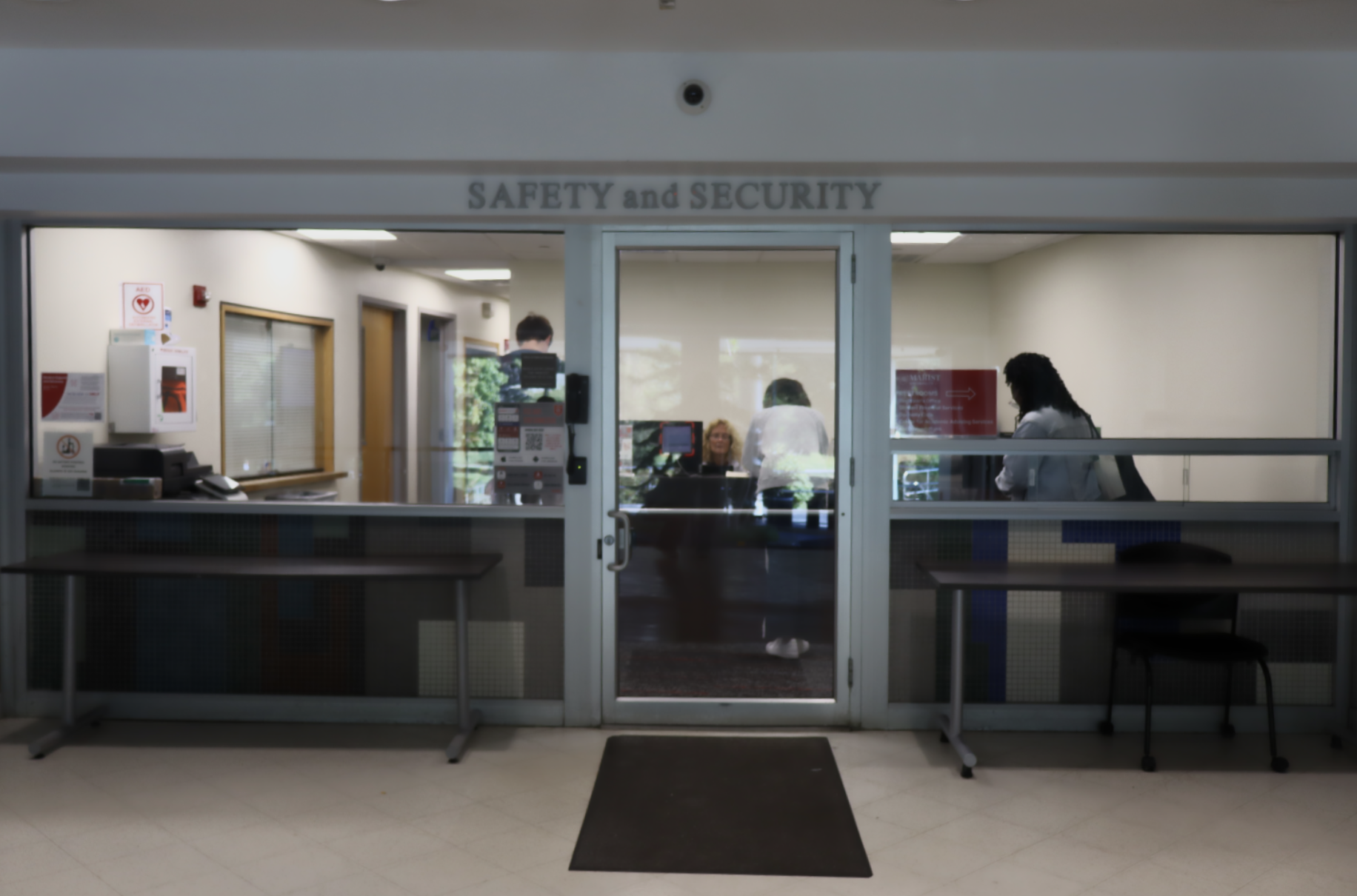Parking to Prevention: Keeping Marist Safe
Office of Safety and Security. Photo courtesy of Helen Tso '29.
As the 2025-2026 school year kicks off, the new freshman class is not the only change seen on campus. Campus Safety Director Daniel Gough has marked the start of his second year at Marist University with some substantial changes.
Gough dedicated a large amount of his time last year to the implementation of two brand new initiatives for the Campus Safety department: The new Marist Shuttle Services and parking regulations and the Marist Safe app.
There are two 24-passenger shuttles running from 7 a.m. to 7 p.m. Monday through Friday, which are intended to better connect the west and east sides of campus and lessen the need for cars.
The Campus Safety department also made parking permits cost $50 per semester, whereas they had previously been free. This, alongside the new assigned parking spaces, which are assigned based on housing location or status as a commuter, are designed to help de-densify campus parking, an issue that has been plaguing Marist students for years.
Despite it being early in the school year, there have already been multiple examples of the positive impact that these changes have had. For instance, it has been noted that there are various open spots in parking lots on campus — especially on the east side — that previously did not exist. There are also fewer parking tickets being handed out this year as compared to last.
Additionally, the ridership on the shuttles is increasing incrementally, and Gough expects it to increase even more once inclement weather hits.
“Getting student input was key to the overwhelming success,” Gough said. “Student input was received via student parking focus groups, information and Q&A sessions.”
Another success story for Campus Safety can be seen in the administration of the new Marist Safe app. As of Sept. 8, the app has 2,507 downloads, with students making use of the app’s various features such as mobile blue light, virtual escort and shuttle tracking. Gough himself has very high hopes for this app, after seeing the success of other safety apps at different colleges.
“Both the Marist Safe app and the parking/transportation initiatives involved a great deal of collaboration and teamwork,” Gough said, noting contributions from groups such as Information Technology, Purchasing and Student Government Association.
While these changes have brought noticeable improvements, there are still ongoing concerns that students should be aware of: one is the rise in incidents known as swatting. Swatting is the informal term used to describe making a prank call to emergency services in the hopes of drawing a large number of police responders to a specific location.
Over the past year, there has been an increase in swatting incidents across college campuses, with some organized groups even offering to swat campuses for monetary compensation. These incidents typically occur during major events such as move-in day, the first week of classes or big games.
Swatting has the potential to draw away valuable police resources and erode confidence in first responders. With this in mind, Campus Safety has been reviewing its protocols to prepare for potential swatting incidents, ensuring that its standard operating procedures align with best practices. The “Report a Tip” option in the Marist Safe app is also a valuable resource in combating such incidents.
Gough, alongside the rest of the Campus Safety department, will continue to work alongside other colleges and local police to mitigate any potential risks.
